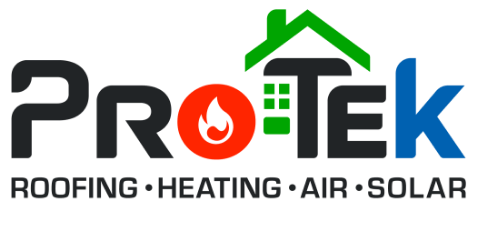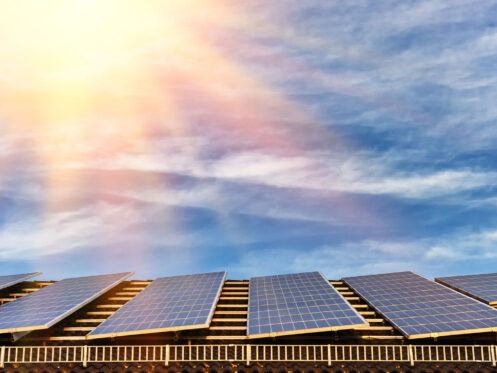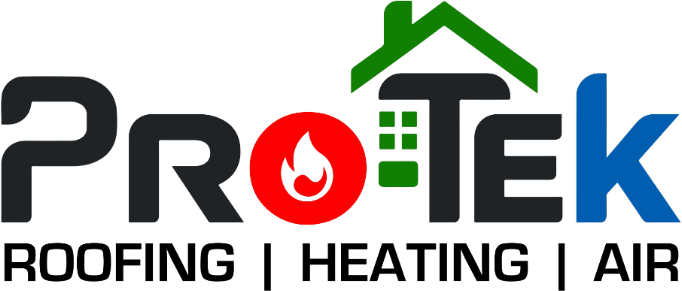In today’s world, where energy and climate change are becoming increasingly relevant, many homeowners and businesses are turning to solar energy as a viable alternative to traditional power sources. Solar panels are a valuable resource for generating electricity from the sun’s rays. With technological advancements today, four major types of solar panels are available in the market: monocrystalline, polycrystalline, thin-film, and Passivation Emitter Rear Cell (PERC) solar panels. Each type has unique features and benefits, making them suitable for different applications and environments.
1. Monocrystalline Solar Panels
Monocrystalline solar panels, also known as single-crystal silicon solar panels, are a type of photovoltaic panel made from a single pure silicon crystal. These panels are widely regarded as the most efficient and reliable solar panels available today. They have an attractive, uniform appearance that can blend seamlessly with the architecture of a building.
One of the advantages of monocrystalline solar panels is that they have a higher conversion efficiency when compared to other types of solar panels. This is because the cells in each panel come from a single, high-quality silicon crystal, which allows for a more consistent flow of electricity. They are also more durable than other solar panels and can withstand harsh weather and extreme temperatures.
Pros of monocrystalline solar panels:
- High efficiency
- Space efficiency
- High durability
- Higher energy output
Disadvantages of monocrystalline solar panels:
- High initial cost
- Microcracks risk
- Efficiency reduction in shaded areas
- Limited design options
2. Polycrystalline Solar Panels
Polycrystalline solar panels are a type of photovoltaic module that is made up of multiple smaller individual silicon cells. These cells are produced through “casting,” which involves pouring hot molten silicon into a square mold and letting it cool and solidify into a large, rectangular block. This block is then sliced into thin wafers, further polished and treated to create the final solar cells.
Advantages of Polycrystalline Solar Panels
One of the primary advantages of polycrystalline solar panels is their cost. These panels are less expensive to manufacture than monocrystalline panels, which makes them an affordable option for homeowners. This is because casting the silicon blocks allows for a higher yield of usable material, and the manufacturing process is generally simpler and less labor-intensive. These panels are known for their durability and ability to function well in hot and cold climates. They are also less susceptible to damage from extreme weather events than other solar panel types.
Polycrystalline solar panels can convert a higher percentage of the sun’s energy into usable electricity than other solar panels. This increased efficiency means fewer panels are needed to generate the same amount of electricity as other solar panels. This reduces the amount of space needed for installation.
Disadvantages of Polycrystalline Solar Panels
Polycrystalline cells typically have lower overall efficiency rates than monocrystalline cells. The manufacturing process of polycrystalline solar panels involves pouring molten silicon into a mold, which results in a less uniform crystal structure. As a result, the panels are less efficient in converting sunlight into electricity, often converting only about 15-17% of the sunlight they receive into electricity.
Another disadvantage of polycrystalline solar panels is their vulnerability to temperature changes. High temperatures can cause the panels to experience greater power loss, reducing their overall efficiency in generating electricity. If a polycrystalline solar panel is cracked or damaged, it can significantly impact the energy production of the entire panel.
These panels also tend to have a shorter lifespan than monocrystalline solar panels. This is because the less uniform crystal structure can lead to more defects, which can cause the panels to degrade and fail over time. As a result, homeowners and businesses may need to replace polycrystalline solar panels more frequently, which can be costly and time-consuming.
Pros of polycrystalline solar panels:
- Lower cost
- Durable
- Can function in hot and cold weather
- Convert higher percentage of sunlight into electricity
Cons of polycrystalline solar panels:
- Lower efficiency
- Less efficiency in converting sunlight into electricity
- Vulnerable to temperature change
- Shorter lifespan than monocrystalline solar panels
3. Thin-Film Solar Panels
Thin-film solar panels refer to a type of solar module constructed using a thin layer of photovoltaic cells. These cells are typically made from silicon or another semiconductor material and are deposited in a thin film on a substrate. This technique allows for a much thinner and lighter solar panel that is easier to install and transport.
One of the main advantages of thin-film solar panels is their flexibility. They can be placed on various surfaces, including curved or irregular ones, making them ideal for various applications. Additionally, they tend to be more efficient at converting sunlight into electricity in low-light conditions, making them a great choice in cloudy or overcast climates.
Several types of thin-film solar panels are available on the market, each with unique properties and advantages. For example, amorphous silicon panels are the most common type of thin-film module known for their high efficiency and durability. Copper-indium-gallium-selenide (CIGS) panels are another popular option, known for their low cost and flexibility.
Pros of thin-film solar panels:
- Lightweight and flexible
- Reduced material use
- Rapid energy payback
- Versatile aesthetics
Cons of thin-film solar panels:
- Lower efficiency
- Reduced durability
- High space requirements
- Less developed technology
4. Passivation Emitter Rear Cell (PERC) Solar Panels
PERC solar panels have gained significant popularity in the last decade due to their higher efficiency, durability, and better performance than traditional solar panels. Their unique structure enables them to absorb more sunlight and convert it into electricity efficiently. In a PERC panel, the rear side is designed to reflect the light that passes through the front. This light reflection helps increase the absorption of sunlight by the panel.
Their cells are treated with a chemical layer of silicon nitride that helps to reduce the amount of reflective light and improve the energy conversion rate. This process, called passivation, helps minimize the chances of solar cell corrosion and degradation.
Another advantage of PERC solar panels is their rear contacts. In traditional solar panels, rear contacts are located at the front, which results in some energy loss. In contrast, PERC solar panels have their contacts at the rear of the panel. This placement helps to improve the panel’s conversion efficiency.
PERC solar panels are becoming more popular in residential, commercial, and industrial settings. They are cost-effective, energy-efficient, and have a long lifespan, making them an attractive option for those who want to reduce their carbon footprints and save on energy bills. As the demand for renewable energy sources increases worldwide, PERC solar panels have a promising future in the solar market.
Pros of PERC solar panels:
- Higher efficiency than the traditional ones
- Reduced electron recombination
- Enhanced temperature tolerance
- Higher energy output
Cons of PERC solar panels:
- Complexity of repairs
- Higher cost
- Manufacturing complexity
- Limited market availability
Rely on the Experts
At Protek Roofing, Heating, Air & Solar, we are committed to providing top-notch services that align with your goals in Tampa, FL. Our team of professionals is equipped with the knowledge and expertise to ensure each solar panel is installed efficiently and effectively. From installations to repairs, you can also trust the Protek Roofing, Heating, Air & Solar team to provide the necessary heating and cooling services. Whether you need a complete roof replacement or need repairs and maintenance, we are equipped to handle it all. Our team will work with you every step of the way to ensure that your project is completed efficiently and to your satisfaction.
Contact Protek Roofing, Heating, Air & Solar today for a professional solar panel service.




